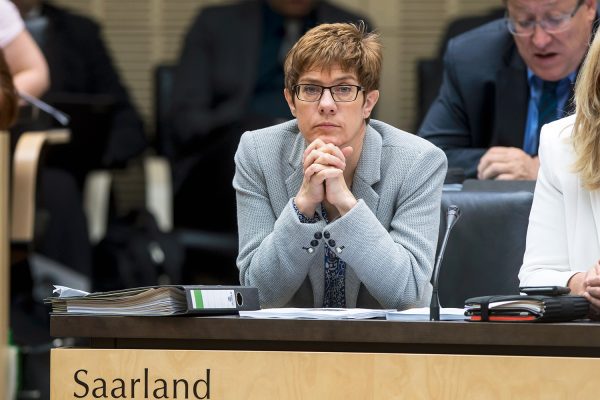
Annegret Kramp-Karrenbauer, the leader of Germany’s Christian Democrats and likely successor to Angela Merkel, has answered Emmanuel Macron’s call for a European “renaissance” in an op-ed for Die Welt. (English version here.)
She embraces some of the French president’s proposals but warns against overreach.
Areas of overlap
- The two leaders agree on the need to protect what Kramp-Karrenbauer calls the “European way of life” in a world that would otherwise be dominated by America and China. Both want a more ambitious European foreign policy, although transferring France’s permanent UN Security Council seat to the EU, as Kramp-Karrenbauer suggests, may be a bridge too far for Macron.
- Macron suggested conditioning membership of the passport-free Schengen Area on participation in an EU asylum policy. Kramp-Karrenbauer doesn’t want to go that far but agrees countries must share responsibility. Her idea to appease immigration-wary Central Europeans: allow countries that contribute more to border defense to take in fewer migrants.
- Both want European investments in technology. Kramp-Karrenbauer is more cautious about revising EU competition rules, but she also recognizes that Europe has to compete with protectionists and state monopolies.
- Both endorse intergovernmentalism in case there is no consensus among the member states. This is the multispeed Europe in which groups of countries can take the lead. Don’t expect the European Commission and the European Parliament to cheer for this. Their preference is for pan-European solutions.
Areas of disagreement
- Kramp-Karrenbauer supports a “common internal market for banks,” but her party has for years resisted a French-backed European banking union.
- Kramp-Karrenbauer explicitly rules out pooling European debts and Europeanizing social security systems and the minimum wage.
- Both call for a partnership with Africa, but Kramp-Karrenbauer argues that should include opening the European market to African agricultural products — which is not something France, which relies heavily on EU farm subsidies, will be thrilled about.
